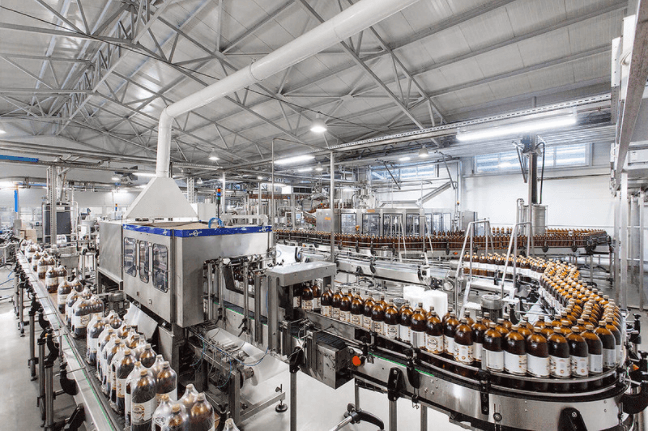Safety is of utmost priority when it comes to process manufacturing especially businesses operating in the food and beverages industry. F&B businesses need to adhere to a specific set of food safety checklist that is put forward by the food and safety regulatory bodies like FDA to ensure that the end consumer consume safe and healthy food products and there is no likelihood of any foodborne disease. This helps the business build and strengthen its brand reputation and keeps them on the good side of the law.
- The checklist makes for a strong tool that helps the businesses
- Identify and promptly resolve any food safety threats
- Make sure that improper food handling and preparation practices are well-taken care of
- There is no poor personal hygiene and handling practices
- Sanitization is taken care of and there is no usage of improper equipment facilities
Food safety is indispensable and an organization should promote it as a culture within and outside the business. This is why it is important to have a well-structured checklist to ensure that.
The United States had two regulatory bodies which protect customers with stringent standards and protocols that food manufacturers and distributors have to abide by– Food and Drug Administration and Environment Protection Agency.
FDA
FDA has three critical regulation which every food manufacturing business has to follow. This is to ensure that the products they are creating are safe and healthy for consumption by the end customers. They are
- HACCP
- FSMA
- CGMP
HACCP
Hazard and Critical Control Points, also known as HACCP, is an important initiative of the FDA. It requires manufacturers to identify and control any hazard points that exist in your production process. The control points should be able to promptly identify the gaps and control them before it escalates the process. Furthermore, FDA requires the manufacturers to ensure proper sanitization and labeling of the products to make sure that the proper communication and protection of the consumers. Thus you can do this by implementing a cloud-based ERP system like Acumatica, which will ensure that every process in the production of the food maintains compliance with the standards and norms.
FSMA
Food Safety Modernization Act, FSMA, requires every manufacturing facility to create and implement a strong food safety defense plan. The plan must be in a written format and must be able to identify any gaps in food safety. Furthermore, it should also mention the steps, mitigation strategies, and procedures that it would follow to nip these vulnerabilities in the bud. Moreover, this can also be taken care of by an ERP, which can keep a track of the training and certifications the employees are earning. Thus, to keep themselves up to date with the changing food safety compliance scenarios.
Current Goods Manufacturing Processes, CGMP, lays down the guidelines for processed foods and dietary supplements, which FDA requires manufacturers to follow. It is also required to ensure that the labeling and packaging is done properly in the master manufacturing record. Hence, ERP can be of significant use to meet the compliance requirements in the sequencing and scheduling of the work.
Another important regulatory body that food manufacturers need to make sure they abide by is Environmental Protection Agency.
EPA
The aim of this regulatory body is to ensure that the food processing is done in a manner that doesn’t harm the environment in any way. Take, for instance, if products have pesticides in them, they of the level that will not harm those who consume it? Furthermore, meat and seafood processing is also a part of EPA supervision. Thus they want to make sure that the process in no way contributes to an unhealthy environment. Hence, implementing a robust cloud-based ERP like Acumatica can ensure that the processing is done in the right manner and there is minimum contribution to the existing degraded environmental health.
Get ERP implementation by Tayana Solutions, today and ensure every process is done in a compliant manner.

